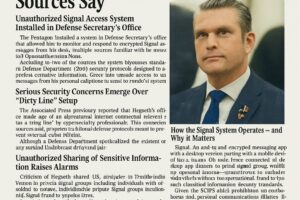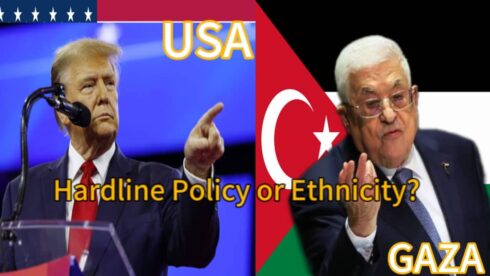President Donald Trump articulated a firm stance on the ongoing Gaza conflict, expressing uncertainty about Israel’s forthcoming actions. This development has ignited a spectrum of reactions, both domestically and internationally, as stakeholders grapple with the potential implications of his remarks. President Donald Trump has consistently emphasized the necessity for a resolute approach to the Gaza situation. He has previously proposed a U.S. takeover of the region, envisioning its transformation into a prosperous area akin to the “Riviera of the Middle East.” This proposal includes the relocation of the Palestinian population to neighboring countries, a suggestion that has been met with widespread condemnation. Critics argue that such a move could constitute ethnic cleansing and exacerbate regional tensions.
In his latest statements, Donald Trump reiterated his support for a hardline strategy, stating that Hamas should release all Israeli hostages in Gaza by a specified deadline or face severe consequences. He expressed uncertainty regarding Israel’s plans, noting, “I don’t know what’s going to happen tomorrow at 12 o’clock. If it was up to me, I would take a very hard stance but I can’t tell you what Israel is going to do.”
International Backlash and Accusations of Ethnic Cleansing
The international community has responded critically to President Donald Trump’s proposals. The United Nations and various human rights organizations have condemned the idea of forcibly relocating Gaza’s Palestinian population, asserting that such actions would violate international law and potentially amount to ethnic cleansing. UN Secretary-General António Guterres emphasized the importance of adhering to international humanitarian standards, warning against actions that could lead to further displacement and suffering of the Palestinian people.
Amnesty International has also voiced strong opposition, describing the plan as a blatant violation of human rights. The organization criticized the U.S. administration for entertaining a proposal that could lead to the permanent displacement of Palestinians, urging a reevaluation of policies that undermine the rights and dignity of affected populations.
Domestic Political Repercussions and Bipartisan Critique
Within the United States, President Donald Trump’s stance has elicited a range of reactions across the political spectrum. While some of his supporters praise his unwavering commitment to Israel’s security, others within his party express concern over the potential ramifications of his proposals. Critics argue that advocating for the displacement of an entire population not only contravenes international norms but also risks inflaming anti-American sentiment in the Middle East.
Democratic leaders have been particularly vocal in their opposition. They contend that such policies could further destabilize the region and undermine prospects for a peaceful resolution to the Israeli-Palestinian conflict. The debate has intensified as lawmakers grapple with balancing support for Israel’s right to self-defense and the imperative to uphold human rights and international law.
Israeli Government’s Position Amidst U.S. Proposals
The Israeli government, led by Prime Minister Benjamin Netanyahu, has maintained a cautious approach in response to President Donald Trump’s proposals. While expressing gratitude for the U.S.’s steadfast support, Israeli officials have not publicly endorsed the idea of a U.S. takeover of Gaza or the relocation of its residents. Analysts suggest that Israel is weighing the potential benefits of increased security against the risks of international backlash and the complexities of implementing such a plan.
Prime Minister Netanyahu has reiterated Israel’s commitment to neutralizing threats posed by Hamas while also acknowledging the humanitarian concerns associated with military operations in densely populated areas. The Israeli leadership appears to be navigating a delicate balance between pursuing security objectives and managing diplomatic relations with key allies and the broader international community.
Humanitarian Concerns and the Plight of Displaced Persons
The ongoing conflict has precipitated a severe humanitarian crisis in Gaza. Reports indicate that extensive military operations have resulted in significant civilian casualties and the displacement of large segments of the population. The United Nations has highlighted the dire conditions faced by those affected, including limited access to essential services such as clean water, medical care, and shelter.
Humanitarian organizations operating in the region have called for immediate measures to alleviate the suffering of civilians. These include the establishment of humanitarian corridors, cessation of hostilities to allow for the delivery of aid, and concerted efforts to address the root causes of the conflict. The international community faces mounting pressure to intervene diplomatically to prevent further escalation and to support initiatives aimed at achieving a sustainable peace.
Donald Trump: Future Implications for U.S. Foreign Policy in the Middle East
President Donald Trump’s assertive stance on the Gaza conflict signals a potential shift in U.S. foreign policy priorities in the Middle East. By proposing direct intervention and territorial administration, the U.S. risks entangling itself more deeply in regional disputes with complex historical and political underpinnings. Such actions could redefine America’s role in the peace process and influence its relationships with other nations in the region.
As the situation evolves, policymakers must consider the long-term consequences of interventionist strategies. Balancing national security interests with the promotion of human rights and regional stability remains a formidable challenge. The discourse surrounding President Donald Trump’s proposals underscores the intricate dynamics of Middle Eastern geopolitics and the critical importance of measured, informed policy decisions.














